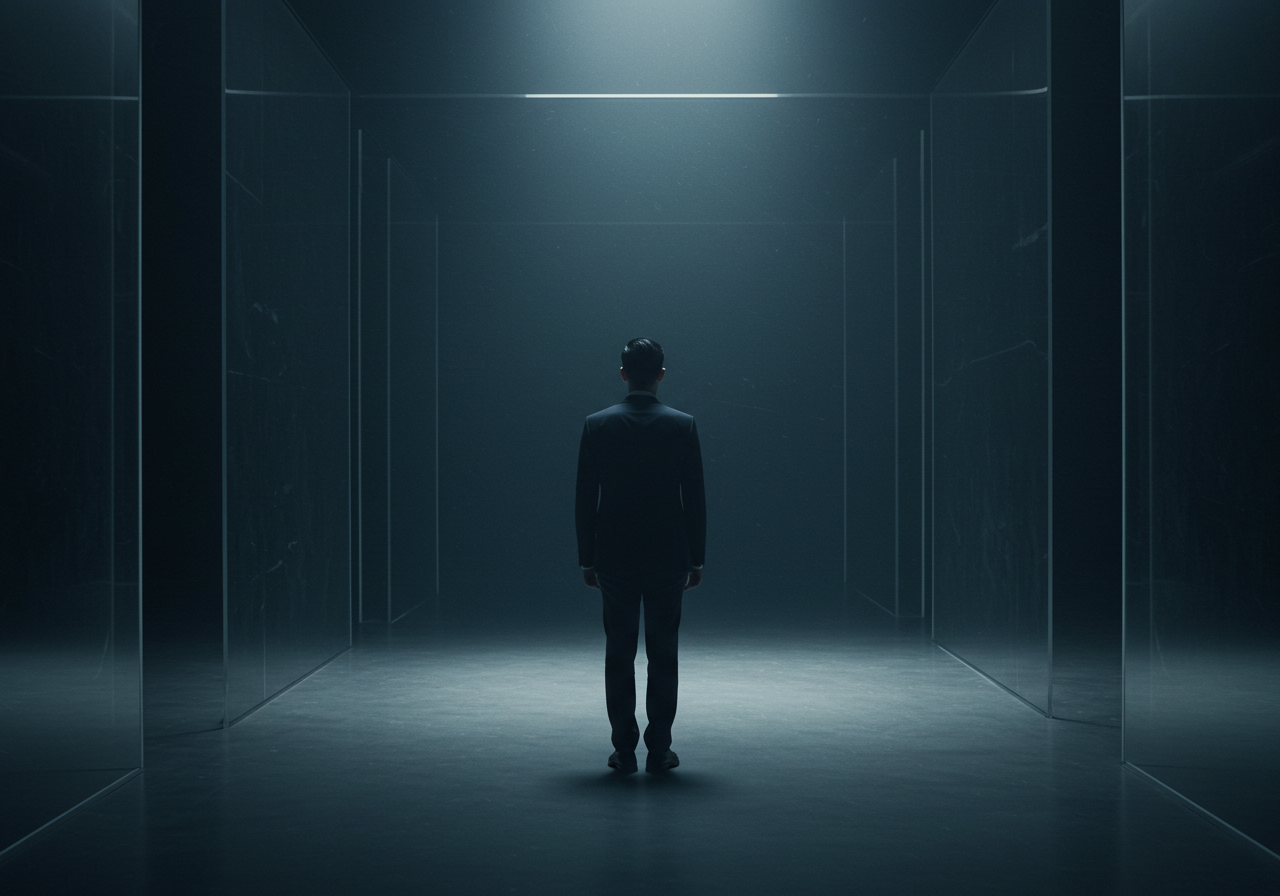The Unseen Walls: Why Privacy Is the Architecture of Freedom
A man standing in a vast minimalist room with invisible glass walls, unseen boundaries implied, cinematic atmosphere.
Most men confuse freedom with exposure. They believe freedom means saying everything, showing everything, living without filter. But exposure is not freedom. It is captivity dressed as openness.
True freedom is built on walls no one sees. Privacy is the architecture that makes sovereignty possible. Without walls, there is no ownership. Without ownership, there is no freedom.
Exposure as Captivity
Modern systems sell exposure as liberation. Share your life. Share your location. Share your secrets. Be “transparent.”
But transparency is not freedom. It is captivity.
What is seen can be mapped.
What is mapped can be controlled.
What is controlled is no longer yours.
The man without privacy is not free — he is an inmate who mistakes the open cell for liberty.
Privacy as Design
Freedom is not chaos. It is order. And order requires architecture.
Privacy builds that architecture.
Walls of Time: No one dictates your availability.
Walls of Access: Not everyone earns your presence.
Walls of Intimacy: What you share remains chosen, never demanded.
These unseen walls are the foundation of true freedom.
Intimacy Within Walls
Intimacy without privacy is collapse. When everything is shared, nothing holds weight. When no boundary exists, no tension survives.
Walls do not kill intimacy. They protect it. They concentrate it. They allow what is shared to carry meaning.
The sovereign man builds walls not to lock himself away, but to refine connection. Rarity makes intimacy sharper. Control makes it stronger.
Digital Walls
In the digital world, freedom is impossible without walls. Every system is built to capture, archive, and exploit what you expose.
The man who builds unseen walls — encryption, compartmentalization, firewalls — lives sovereign. He does not refuse technology. He refuses captivity. His freedom is not exposure, but resistance.
Digital walls are not optional. They are survival.
Why Weak Men Tear Down Their Own Walls
Weak men believe walls isolate them. They want to be seen, approved, validated. They believe freedom means endless access.
But endless access is slavery. It is living as a product, bought and sold. Weak men advertise their own captivity and call it expression.
Strong men know: walls are not isolation. They are liberation.
The Architecture of Freedom
Every act of privacy is a brick. Every boundary enforced is mortar. Over time, a fortress rises. And within that fortress, a man lives free.
The unseen walls do not need decoration. They do not need applause. Their strength is silent. Their presence is absolute.
A man with walls cannot be owned.
Closing Command
Do not confuse exposure with freedom. Build walls. Guard them. Live within them.
The man who lives without privacy is a captive.
The man who builds unseen walls is sovereign.

